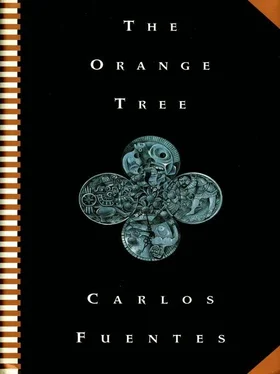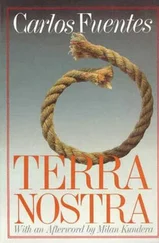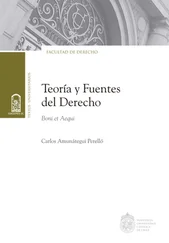My brother Don Martín, the man who could have been king of Mexico, was sent back to Spain. Why? His enemies rejoiced, thinking that there things would go worse for him and the King would bring the full rigor of justice down on him for his crimes. His friends were also happy, seeing in the decision a way of protecting Martín and deferring sentence. I, on the other hand, fully aware of my failure, told him, “Brother, stay in Mexico, take a chance, but hurry the sentence. Don’t you realize that if you go back to Spain the same thing will happen to you as happened to our father? Your trial will never end. It will go on eternally. Cut the thread holding the sword over our heads. If you go back to Spain you will be deprived of all power, just like our father. That’s the secret of bureaucrats in Spain and everywhere else: to prolong matters until everyone forgets about them.” But my brother answered me simply: “Neither I nor they want to see me here anymore. Neither they nor I want what awaits me here. Fighting and perhaps martyrdom. I don’t want it.”
MARTÍN 1
Carlos V gathered a great armada in 1545 to strike against the eunuch Aga Azán, who governed Algeria. Twelve thousand sailors, twenty-four thousand soldiers, sixty-five galleys, and five hundred other ships gathered in the Balearic Islands. The Emperor led the armada. With only eleven ships and five hundred men, my father had conquered Moctezuma’s empire. Now they didn’t even give him command of a galley. But he took the galley. I was thirteen years old. My father enlisted as a volunteer and took me by the hand to take possession of the galley Hope. No one knew more about war than he, not even the Emperor. He warned them about bad weather. He warned them about the excessive size of the expeditionary force. All they had to do was wait for good weather and launch a surprise attack with a reduced force. No one paid him any attention. The expedition failed amid the storm and the confusion. My father always traveled with his five emeralds. Fearing to lose them in the Algiers disaster, he wrapped them in a handkerchief. He lost them swimming for his life. Now I would like to sink in the Mare Nostrum until I find them: one carved like a rose, another like a trumpet, another like a fish with golden eyes, another like a little bell, another like a little cup resting on a gold base.
But were those his real treasures? I remembered then the death of my father, the scent of the flowering orange tree entering through the window in Andalusia, and I tried to imagine that in his purse, from when he disembarked one day in Acapulco and there planted an orange tree, my father had carried those well-kept seeds, and they were not lost, they did not go to the bottom of the sea, they allowed the twin fruits of America and Europe to grow, flourish, and, one day, to meet without rivalry.
Very forgotten things reappear at moments that cause pain. I curse until the fourth generation all those who caused us pain.
MARTÍN 2
Mother: Only with you did our father triumph. Only at your side did he have a rising fortune. Only with you did he experience the seamless destiny of power, fame, compassion, and wealth. I bless you, my mother. I thank you for my dark skin, my liquid eyes, my hair like my father’s horse’s mane, my bare pubis, my short height; my singsong voice, my obstinate silence, my diminutives and my curses, my dream longer than life, my suspended memory, my satisfaction disguised as resignation, my desire to believe, my longing after paternity, my face lost amid the dark-skinned human tide, subjugated as I am: I am the majority.
MARTÍN 1
I don’t want to be a martyr. I prefer this farce to an interminable court case that wears down both my judges and me. I’m leaving Mexico, as they asked me. They want to keep me quiet. Fine. I’m leaving and placing my property under the care of my older brother, the son of the Indian woman. In Spain, they pursue the case against me and I’m sentenced to exile, fines, and loss of property. That happens in 1567. The punishments are reversed in 1574, except for the fines. I’m forty-four years old. My properties are restored to me, but they force me to make a loan of fifty thousand ducats to the Crown for the war effort. A worthy cause. My Mexican power is dismembered when the Crown annexes my Tehuantepec and my Oaxaca. Lord and Master! Not me, although I will leave something to my descendants. More money, ultimately, than power. That’s how it will always be. No dictator will last long in Mexico. The country doesn’t want tyrants. It’s too fond of tyrannizing itself, day after day, rancor after rancor, injustice after injustice, envy after envy, submission after submission, from the lowest to the highest. I will never return to Mexico. I will die in Spain on August 13, 1589, at the age of sixty-seven, the anniversary of the taking of Tenochtitlán by my father and of the failed conspiracy for the independence of the colony. I leave my property to my children, but in dying I sink into the sea off Algiers seeking my father’s five lost emeralds. They are the same ones Moctezuma gave him. They are the same ones that, to his grief, my proud and blinded father did not want to give, or even to sell, to the Queen of Spain.
MARTÍN 2
I was tortured in Mexico and exiled to Spain. I died at the end of the century. How old was I? Seventy, eighty? I lost count. The truth is I was always just eight years old. I nestled in the arms of my mother, the Indian Marina, La Malinche. In each other’s arms, every night, that’s the only way we saved ourselves from terror. We heard the gallop of horses. That’s the terror, that’s the strange new thing. Horses gallop and birds fly, flies buzz. We hug each other, my mother and I, shivering with fear. We know we shouldn’t be afraid of the horses my father brought to Mexico. We should fear the incessant upheaval of the world over our heads. I remember my mother’s worn, sick skin. I would have wanted to see, as did my brother Martín, who embraced him in death, my old father: his skin. Now I see my own, I’m so old, and I remember the morning my brother and I spent staring at the Valley of Mexico. My skin is a field. My wrinkles and my veins are plowed fields, accidents on the land. My bones are rocks. The lines on my palm are skin, field, and paper. Written land, suffering land as sensitive as a skin, inflammable as a codex. My mother and I embrace at night to defend ourselves, poor us, from the dream of the land. In nightmares, we’ve seen the spectacle of death. My father’s escorted by death. He’s dying. How many died before he did? With how many is he dying? How many in fact survive us? I tell all this and I am astonished by the world, and at times I wish I hadn’t been in it. We lose our illusions about what we wanted so much. I’m sick of the spectacle of death. I don’t understand how a nation is born.
El Escorial, July 1992
Oh walls of this city!
If you can speak, then say …
— CERVANTES, The Siege of Numantia
THEY, the Spaniards, are a coarse, savage, and barbarous people whom we Romans lead, whether they like it or not, toward civilization. Thanks to the Greeks and Phoenicians, there is some development in the peninsula’s coastal areas. But just penetrate this surly, arid land the slightest bit and there’s nothing: no roads, no aqueducts, no theaters, and no cities worthy of the name. They have no idea what wine, salt, oil, and vinegar are. Which is why our soldiers have such a hard time of it in the Iberian campaigns. They’re forced to eat barley and rabbit boiled in salt water, so dysentery has become endemic among our troops. Our satiric poets laugh, but so do our ordinary foot soldiers. We’re fertilizing Spanish soil with Roman shit. And one more thing: the Spaniards never bathe.
Читать дальше












